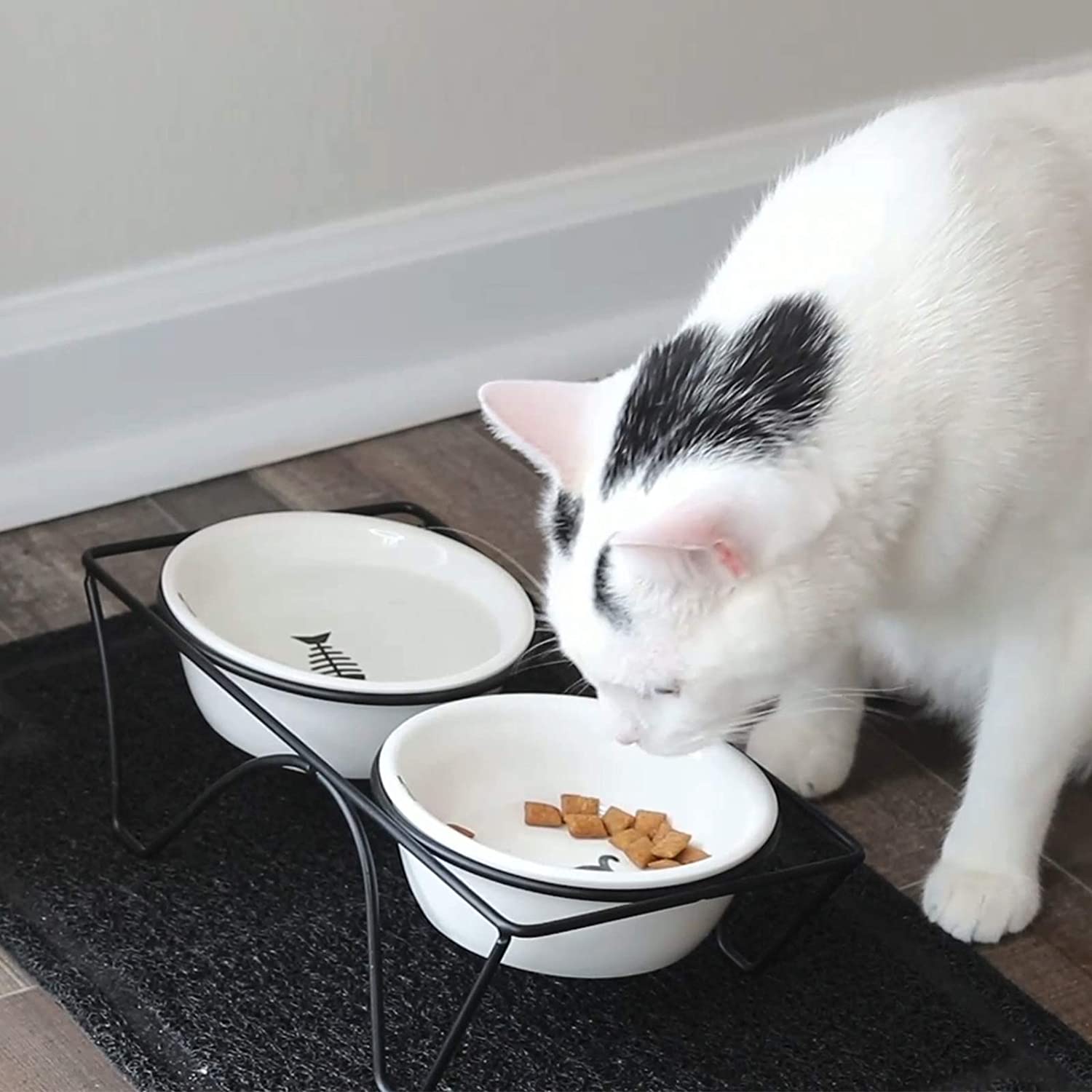
When Your Cat Suddenly Spends More Time in The Litter Box…
In some cases, cats may see their litter boxes as private spaces, and your cat may choose to stay in the litter box in order

Why Does My Cat Meow So Much?
Cats meow for many reasons, from the serious to the attention-seeking. You can observe which of the following conditions your cat belongs to:
1. Illness. The first step is a thorough checkup by your veterinarian. Numerous diseases can cause excessive meowing, for example, hyperthyroidism displays a number of symptoms, including weight loss despite ravenous hunger, excessive activity and excessive vocalization. If your cat is showing these symptoms and your cat won’t stop meowing, take her to the vet right away for a checkup and blood test.
2. Attention seeking. Some people think, cats don’t like being alone a lot. Cats often meow to initiate play, petting, or to get you to talk to them. If you want to cut down on attention-seeking meows, stop responding when it happens. Only give them attention when they are quiet. If they start to meow again, look or walk away. But don’t ignore your pet. Spend quality time each day with them, playing, grooming, and talking to them. A tired pet is a quieter pet.
3. Wants food. Some cats meow every time someone walks in the kitchen, hoping to get a bite. And many cats become very vocal when it gets close to their feeding times. If this is your problem, don’t feed your cat when they cry. Wait until they are quiet to put down food, and don’t give them treats when they meow.
4. Greeting you. Many cats meow when their people come home, or even when they just meet them in the house. This is a hard habit to break, but look at it as kitty saying they are happy to see you.
5. They are lonely. If your pet spends too many hours a day alone, think about getting something to enrich your pet’s life. A cat tree is a great option for your cat climbing up and climbing down to pass the time, or it can act as a resting place.Cats also like to sunbathe, and you might consider getting your cat a cat hammock to enjoy sunbathing.
6. A stressed cat. Cats that are experiencing stress often become more vocal. A new pet or baby, a move or changes to the home, an illness or the loss of a loved one can turn your cat into a talker. Try to discover what is stressing your pet and help them adjust to the change. If that’s not possible, give your cat extra attention to help soothe them.
7. Aging cats. Cats, just like people, can suffer from a form of mental confusion, or cognitive dysfunction, as they age. Her response will be wails, yowls and excessive cat meowing. A cat with cognitive dysfunction may also become more irritable, sleep more or have altered sleep cycles, lose coordination, and even on occasion become incontinent.
8. Cats that want to breed. If your cat isn’t spayed or neutered, then you’re going to hear a lot more noise. Females yowl when in heat, and males yowl when they smell a female in heat. Both can be maddening to live with. Getting your pet spayed or neutered will prevent this.
Sources:

In some cases, cats may see their litter boxes as private spaces, and your cat may choose to stay in the litter box in order

Cats are known for their curiosity and playful ways. So, can cats have feelings like humans?Cats can indeed feel a variety of emotions, so how

HAVE TO DO 1. Pay attention to diet and thirst High-quality wet food is most beneficial to your cat’s health because it is most similar

When you first started raising kittens, I believe many people would be distressed: Why doesn’t my cat use a litter box? Why does my cat